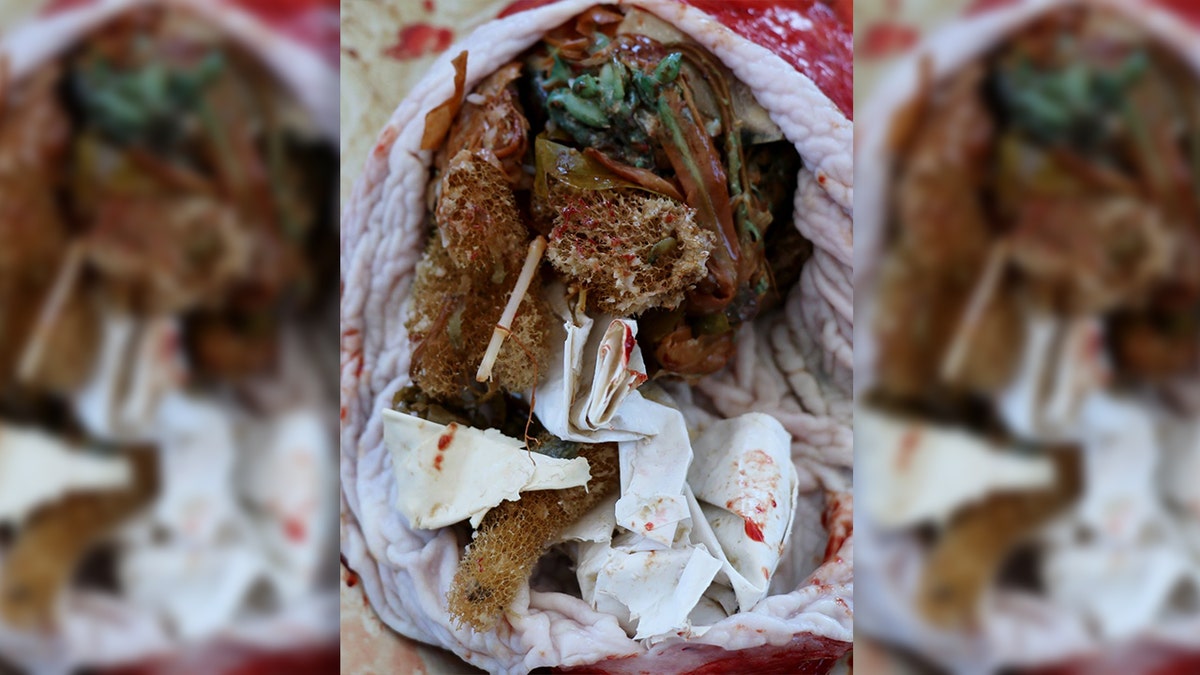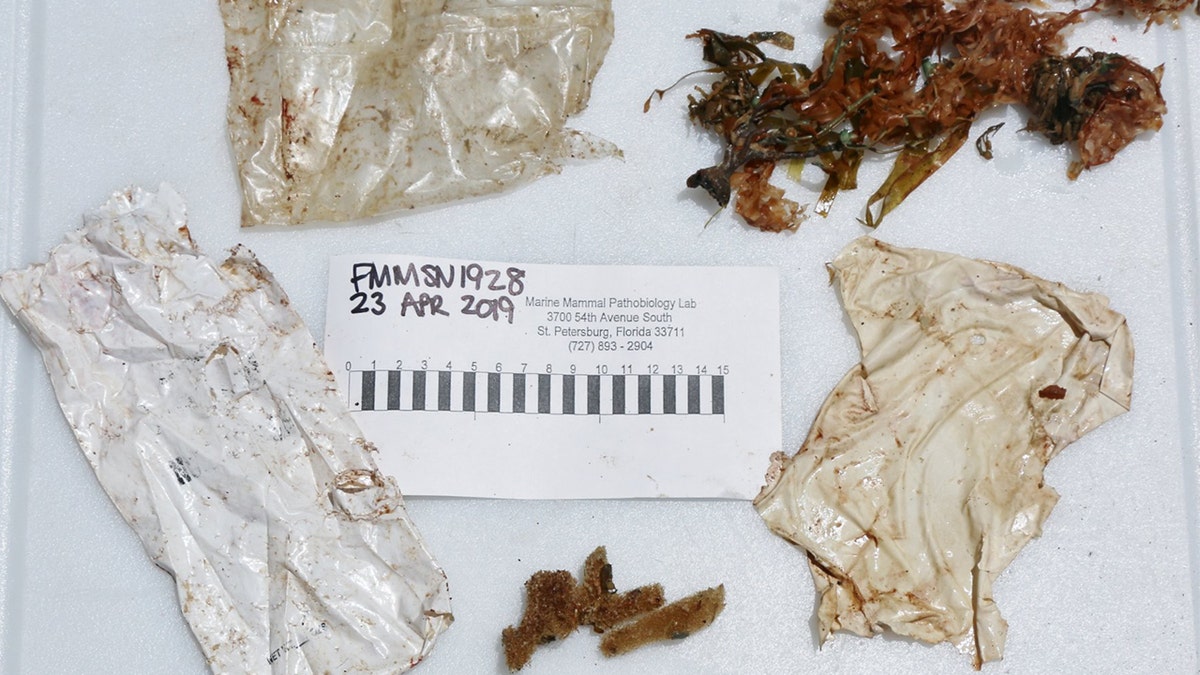Fox News Flash top headlines for April 28
Fox News Flash top headlines for April 28 are here. Check out what's clicking on Foxnews.com
Researchers made a sad discovery in the stomach of a dolphin who was found stranded on a Florida beach last week.
Two plastic bags and a shredded piece of a balloon were unearthed in the belly of the rare deep-water mammal by biologists with the Fish and Wildlife Conservation Commission, the organization wrote on Facebook.

Biologists discovered garbage inside the stomach of a rough-tooth dolphin after it washed ashore in Florida last week. (Florida Fish and Wildlife Conservation Commission)
The rough-toothed dolphin was beached in Fort Myers Beach on Tuesday. Researchers stated that while the garbage inside of the dolphin's stomach was "a significant finding, there are many additional factors to consider, such as underlying illness, disease and maternal separation, before a final cause of stranding and death for the dolphin can be determined."
Additionally, the trash "highlights the need to reduce single use plastic and to not release balloons into the environment."
CLICK HERE TO GET THE FOX NEWS APP
According to the National Oceanic and Atmospheric Administration, rough-tooth dolphins are protected under the federal Marine Mammal Protection Act and live throughout the world in tropical climates. The diet of the mammals, who can live for more than 36 years, consists of squid and fish.

A shredded piece of balloon was found in the dolphin's stomach. Researchers said this highlights the need to stop releasing balloons into the environment. (Florida Fish and Wildlife Conservation Commission)
The dolphin found on Tuesday was emaciated and in poor health and was euthanized on site, according to the Fort Myers News-Press.
Florida Fish and Wildlife said those who come across stranded marine mammals not to try pushing the creatures back into the water, "as it can delay examination and treatment and often results in the animal re-stranding in worse condition," but rather to contact Wildlife Alert at 888-404-3922 instead.









































